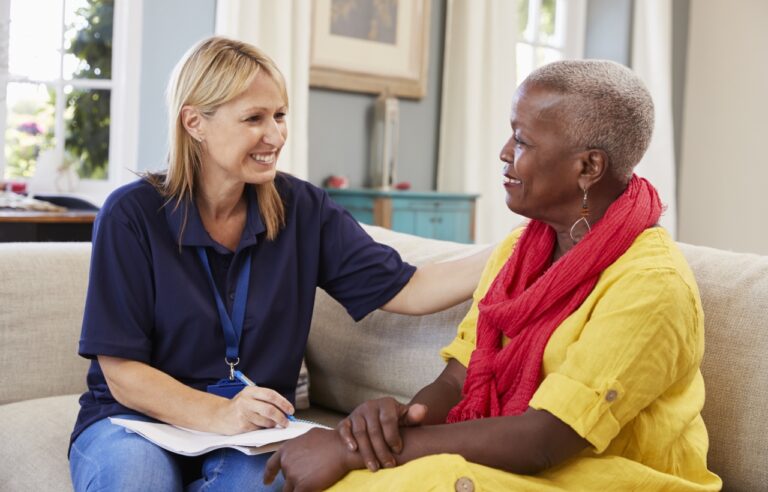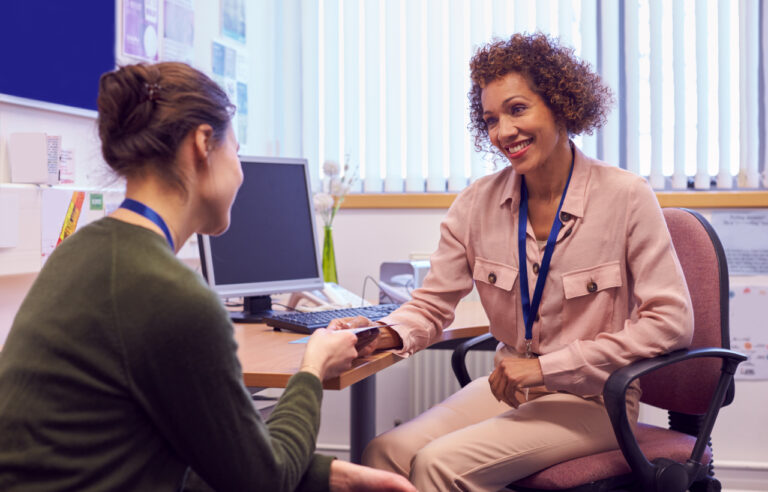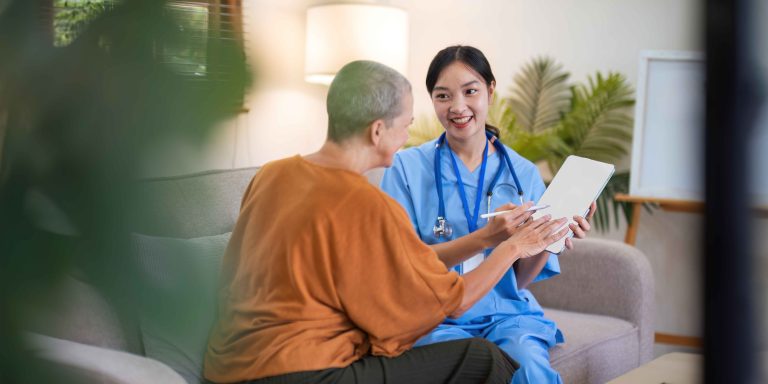The Benefits of Couples Counseling
Enhancing Communication Skills
Couples therapy is vital for improving communication skills, which are essential for nurturing a mutually beneficial relationship. During sessions, couples learn techniques to effectively express their thoughts and feelings, actively listen to one another, and address misunderstandings constructively. Effective communication is the cornerstone of a strong partnership.
Addressing Relationship Challenges
Couples counseling helps in tackling various relationship challenges. These may include:
- Communication skills
- Conflict resolution
- Intimacy and connection
- Financial matters
- Parenting challenges
- Infidelity
- Blended families
- Life transitions
- Equality and boundaries
- Trust issues
- Loss of connection
- Balancing independence and togetherness
These topics can be openly discussed and addressed within the safe environment of a counseling session (Marble Wellness). By working through these issues, couples can find mutually satisfactory solutions and strengthen their bond.
Fostering Emotional Intimacy
Counseling sessions provide a safe space for couples to be emotionally intimate and vulnerable. This supportive setting allows partners to understand each other’s emotional needs better, fostering profound connections (Talkspace). By sharing emotions and building trust, couples can develop a deeper sense of intimacy and emotional security.
For more information on the role of family therapy and how it can help in healing relationships, visit our article on the role of family therapy in healing relationships. Additionally, learn more about how to support a loved one in therapy and explore different types of psychotherapy that may suit your needs.
Goals of Couples Therapy
In every successful relationship, communication, trust, and shared goals are essential components. At The Hope Wellness Center in Newport, RI, we believe that couples therapy is a valuable tool in achieving these components. Let’s explore the goals of couples therapy to understand what to expect from marriage counseling sessions.
Improving Communication
One of the primary goals of couples therapy is to enhance communication skills between partners. Effective communication is crucial for resolving conflicts and building a stronger connection. Therapists at our center use various techniques to help couples express their thoughts and feelings more openly and constructively.
According to Well Marriage Center, pro-relationship counseling emphasizes safeguarding relationships by bringing communication barriers to light and resolving them. Our professionals assist couples in identifying communication patterns that may be detrimental and provide strategies to foster healthier interactions.
Setting Relationship Goals
Couples therapy provides a structured path to achieving a happy and fulfilling relationship. Setting clear and achievable goals helps couples work towards a common objective, making their partnership stronger over time.
At The Hope Wellness Center, we assist couples in defining their relationship goals, which may include improving intimacy, aligning on financial plans, or planning for the future. Each session is designed to address these goals, ensuring that both partners are working towards mutual happiness and satisfaction. For more insights on different therapy techniques, refer to our article on exploring different types of psychotherapy: which one fits your needs?
Building Trust and Connection
Trust is the bedrock of any relationship. Without trust, the foundation of a relationship can quickly crumble. In couples therapy, building trust and deepening the emotional connection between partners is a key focus.
Our therapists use various methods to help couples rebuild trust, whether it’s recovering from a betrayal or years of distrust. Techniques such as ensuring confidentiality and advising only when safety is involved are critical, as noted by the Jupiter Center. Creating a safe and non-judgmental space allows couples to be vulnerable and honest, laying the groundwork for a renewed sense of trust.
| Goal | Description |
| --- | --- |
| Improving Communication | Enhancing the ability to express feelings and thoughts openly. |
| Setting Relationship Goals | Creating a structured path to mutual happiness. |
| Building Trust | Restoring and nurturing a trustworthy bond. |
Couples therapy at The Hope Wellness Center aims to establish healthy practices that can be maintained daily. These practices are designed to improve the relationship dynamically and sustainably. Understanding these goals can provide clarity on what to expect from marriage counseling sessions. For further reading, explore our articles on the process and benefits of couples counseling and the role of family therapy in healing relationships.
Getting Started with Couples Counseling
Embarking on the journey of couples counseling can be a significant step toward improving your relationship. Here are key considerations for those seeking to understand what to expect from marriage counseling sessions.
Choosing the Right Therapist
Selecting the appropriate therapist is crucial. At The Hope Wellness Center in Newport, RI, our experienced therapists specialize in adult psychiatric services, child and adolescent treatment, and holistic services. It’s important to find a therapist experienced in couples therapy.
When selecting a therapist, consider:
- Qualifications and experience in couples therapy.
- Their approach and therapeutic techniques.
- Whether they accept insurance or offer sliding scale fees.
For insights on finding the best therapist, read our guide on how to choose the right mental health therapist.
Setting Therapy Goals
Establishing clear and realistic therapy goals can provide a structured path toward relationship improvement. Common goals include:
- Enhancing communication skills.
- Resolving existing conflicts.
- Building trust and emotional connection.
According to the Well Marriage Center, setting specific therapy goals helps outline the purpose of each session and track progress effectively. Journaling thoughts and feelings each week can also help focus discussions and maximize the benefits of therapy.
Ensuring Confidentiality and Trust
Confidentiality is fundamental in therapy. Our therapists at The Hope Wellness Center ensure that all sessions remain private, providing a safe space for open discussions. However, therapists are legally required to disclose information if there is a risk of harm to oneself or others (Wellness Hub).
Trust between you and your therapist is crucial for effective therapy. Ensure that you understand their approach and feel comfortable discussing sensitive topics. For more about different therapy approaches, see our article on exploring different types of psychotherapy: which one fits your needs?.
Important Considerations
The structure of working with couples in therapy often depends on various upfront decisions, such as whether to use insurance and whether both partners will see the therapist individually (Jupiter Center).
For further details on the introductory steps of starting therapy and ensuring a productive counseling experience, refer to our article on how to prepare for your first therapy session.
By focusing on these key areas, couples can approach therapy with a clear understanding and commitment to improving their relationship.
Process of Couples Counseling
Couples counseling is a series of structured sessions designed to address specific relationship issues and improve overall relationship satisfaction. Here’s what to expect from marriage counseling sessions.
Structuring Counseling Sessions
The structure of counseling sessions starts with defining overarching goals to guide the therapy. A typical session usually comprises:
- Review: A brief review of the week and any new issues.
- Discussion: In-depth discussion and analysis of specific problems or patterns.
- Exercises: Concluding with exercises or homework for the couple to practice outside of therapy.
The structure also depends on initial decisions about the use of insurance, whether one partner or the couple will be the “client,” and if individual sessions are needed.
Techniques Used in Therapy
Various techniques are employed in couples counseling to facilitate growth and resolution:
- Client-Centered Therapy: Focuses on the partners’ feelings and thoughts, promoting empathy and understanding.
- Cognitive Behavioral Therapy (CBT): Aims to identify and change negative thought patterns and behaviors. For an in-depth look at CBT, see understanding cognitive behavioral therapy (cbt): is it right for you?.
- Emotionally Focused Therapy (EFT): Works on strengthening emotional bonds and attachment.
- Solution-Focused Therapy: Concentrates on finding solutions to specific problems rather than dwelling on past issues.
These methods help couples enhance communication, resolve conflicts, and build stronger emotional connections.
Homework and Practices
Homework and practices play a vital role in the success of counseling. They help couples implement daily healthy practices and build on what they’ve learned during sessions (Well Marriage Center). Here are common types of homework:
- Communication Exercises: Practice active listening and expressing feelings.
- Journaling: Document thoughts and feelings to share during sessions.
- Behavioral Assignments: Engage in positive activities together, such as date nights, to reinforce bonding.
| Type of Homework | Purpose |
|---|---|
| Communication Exercises | Enhance listening and speaking skills |
| Journaling | Document and reflect on feelings |
| Behavioral Assignments | Reinforce positive interactions |
For additional tools and techniques that may be incorporated into your sessions, read our article on exploring different types of psychotherapy: which one fits your needs.
Couples counseling is not just about resolving present conflicts but also about arming partners with the tools needed for long-term success. By adhering to the structured session plans, using effective techniques, and diligently completing homework, couples can work towards a more satisfying and resilient relationship. For further insight into maintaining a healthy relationship, see our article on the process and benefits of couples counseling.
Long-Term Success in Couples Therapy
To achieve long-term success in couples therapy, it’s essential for partners to incorporate and practice the skills and techniques they have learned during their sessions. Here are some key areas to focus on for maintaining a healthy and thriving relationship.
Implementing Learned Techniques
Throughout therapy sessions, couples acquire various tools and strategies designed to improve their relationship. Implementing these techniques in daily life is crucial for continued growth. Regular practice ensures that these skills become second nature, aiding in the resolution of conflicts.
Examples of Techniques Learned in Therapy:
- Active Listening: Encouraging partners to fully engage and understand each other’s perspectives.
- Conflict Resolution: Applying structured approaches to navigate disagreements effectively.
One way to ensure consistent implementation is to set aside time each week to discuss any challenges and practice the techniques learned. Regular sessions with the therapist for periodic check-ins can also reinforce these skills (Wellness Hub).
Maintaining Open Communication
Open and honest communication is the foundation of any strong relationship. Maintaining open lines of communication helps in addressing issues before they escalate, promoting understanding and empathy between partners.
- Scheduled Check-ins: Set aside regular intervals to discuss the relationship and any concerns.
- Non-Judgmental Environment: Create a safe space where both partners feel comfortable sharing their thoughts and feelings without fear of criticism.
An essential aspect of open communication is ensuring that both partners feel heard and validated. Encourage the use of “I” statements to express feelings and needs without placing blame.
Committing to Relationship Growth
Committing to the continuous growth of the relationship is vital for long-term success. Viewing the relationship as an ongoing journey allows partners to adapt and evolve together, facing life’s challenges as a united team.
- Growth Mindset: Approach the relationship with a mindset focused on growth and improvement rather than perfection.
- Periodic Reflection: Reflect on the progress made and set new goals for the relationship.
Therapy offers couples a roadmap for navigating significant life events and stressors together by developing coping strategies. Periodic sessions with the therapist can help maintain momentum and address any new challenges that arise.
By focusing on these key areas, couples can ensure the long-term success of their relationship post-therapy. For more insights, consider exploring articles such as understanding cognitive behavioral therapy (CBT): is it right for you? and the process and benefits of couples counseling. These resources can provide additional strategies and support for maintaining a healthy relationship.
Insights into Couples Counseling
Research on Therapy Impact
Research consistently demonstrates the effectiveness of couples counseling on relationship satisfaction and emotional well-being. According to the American Association for Marriage and Family Therapy, over 75% of clients experience improvements in their relationships post-counseling. Additionally, 90% of clients report enhanced emotional health following therapy.
| Outcome | Percentage of Clients Who See Improvement |
|---|---|
| Improved Relationship | 75% |
| Enhanced Emotional Health | 90% |
| Positive Impact on Relationship | 70% |
Information supported by Talkspace.
Navigating Life Events Together
Couples counseling provides a structured roadmap for navigating significant life events and stressors as a unified team. This type of therapy supports healthy communication and effective problem-solving, essential skills particularly when facing major milestones or transitions.
Therapists work with couples to develop personalized strategies tailored to their unique relationship dynamics and life circumstances. By addressing specific personality types and lifestyles, counseling helps couples handle challenges such as career changes, parenting, and health issues. For those interested in exploring different approaches to psychotherapy, consider reading our guide on exploring different types of psychotherapy.
Coping Strategies and Building Resilience
Coping strategies learned in counseling are pivotal for building resilience in a relationship. These strategies often include techniques to manage stress, improve communication, and solve conflicts effectively. Well Marriage Center focuses on preserving and enhancing relationships through clinically proven methods that restore respect, love, and affection (Well Marriage Center).
Customized advice is a hallmark of marriage counseling, which avoids generic recommendations in favor of tailored solutions. For example, therapists may recommend specific practices like regular check-ins or stress-relief activities suited to the couple’s lifestyle. Developing these personalized coping strategies ensures that couples are better equipped to face future challenges.
For more insights into coping mechanisms and therapy benefits, explore our article on the role of family therapy in healing relationships.
By understanding and implementing the learnings from couples counseling, couples can foster a stronger, more resilient partnership over the long term. For additional resources, consider reading about the benefits of integrating mindfulness into therapy and how to find the best therapist near you.











